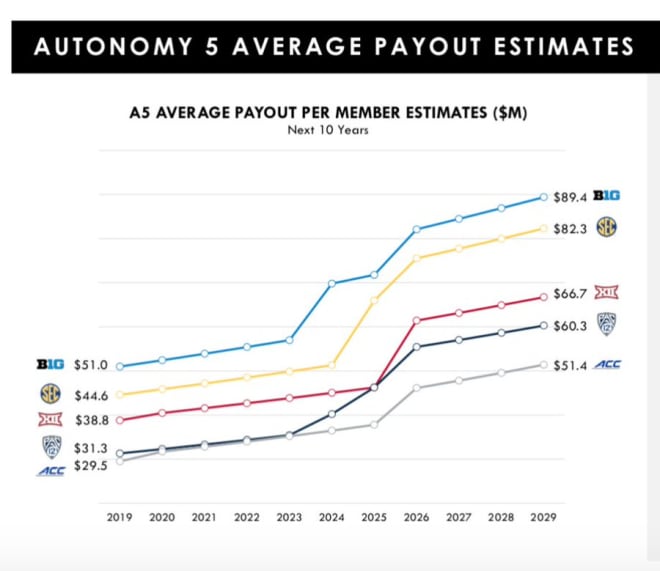For those that don't know:
"ACC presidents are likely to decide Wednesday how and if the league can plan for fall sports during a global pandemic, and among the primary options are a 10-plus-1 and 8-plus-1 football schedule, both of which could include Notre Dame and make the Fighting Irish eligible for the ACC title game."
So full membership privileges without joining the ACC in football.
FSU fans finally seeing the truth (took them way too long). FSU won't be in the ACC in 20 years. Sadly, it will be stuck in the ACC for a good part of that. But even the most brain washed of FSU fans is now seeing the ACC is a waste of a conference.
Simply no benefit to FSU as a football program.
https://rubbingtherock.com/2020/07/25/john-swofford-acc/
John Swofford is letting the ACC down yet again
Reports came out Friday that the ACC would allow a “no strings attached” option for Notre Dame in 2020 that would provide them with a full ACC schedule and allow them to be eligible for the ACC championship game.
John Swofford announced his retirement a little over a month ago effective the end of the 2020-2021 athletic calendar. He will have served as the ACC commissioner for 24 years when he finally steps down and it cannot come soon enough.
We all know other than UNC and Duke, Swofford has never cared about the ACC in general. Everything he has done over his two decades of service has benefitted the UNC and Duke Basketball programs and not much of anything else.
Giving Notre Dame a pass for 2020 truly shows how little Swofford cares for the programs that give everything they have to conference and wave the conference flag every year – whether they are good or bad.
If the ACC was ever going to have the bargaining power to force Notre Dame into the conference fulltime, it is right now. The Irish know that if they are unable to play a conference schedule in 2020, they have zero chance at the College Football Playoffs in 2020 and Swofford should be using that to his advantage.
https://richmond.com/sports/college/teel-notre-dame-the-most-intriguing-subplot-as-acc-starts-assembling-a-football-schedule/article_0c19ed90-28fb-57b2-b592-d0d8280a9252.html
As Duke coach David Cutcliffe said earlier this month when I asked him if Notre Dame should be included in the conference’s scheduling plans this season: “If they’re willing to share their [NBC] money, sure. You don’t get something for nothing. I would welcome them as a coach to be a part of ACC football.”
https://floridastate.forums.rivals.com/threads/don%E2%80%99t-care-for-a-dog-however-he-is-right.294195/
